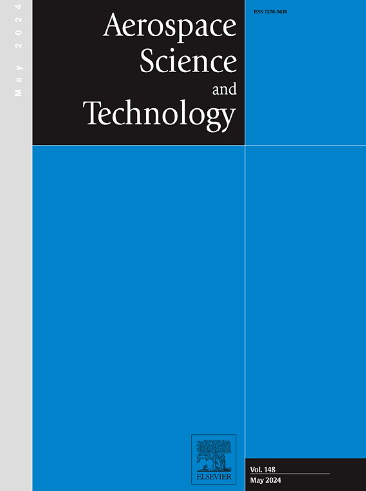Unwinding-free property of the dual-quaternion-based pose tracking controllers designed by fully actuated system approaches
IF 5
1区 工程技术
Q1 ENGINEERING, AEROSPACE
引用次数: 0
Abstract
An adverse issue known as the unwinding phenomenon often arises in the pose (attitude and position) control of spacecraft, increasing the spacecraft energy consumption and degrading the spacecraft control performance. Various methods have been proposed to prevent the occurrence of this issue, such as introducing logic variables with hysteresis, using switching functions, and designing anti-unwinding functions. In contrast to these works, this investigation provides a way different from the existing works to achieve unwinding-free pose control. Due to the special structure of the dual-quaternion-based pose controllers designed by the fully actuated system methodology, they are free from the unwinding phenomenon. This leads to that the present work does not require any additional operations to prevent the occurrence of the unwinding phenomenon. The stability of the controlled system and the unwinding-free property of the proposed controllers are demonstrated through both theoretical analyses and numerical simulations.
采用全驱动系统方法设计的双四元数姿态跟踪控制器的无解卷特性
在航天器姿态(姿态和位置)控制中经常出现解绕现象,增加了航天器的能量消耗,降低了航天器的控制性能。为了防止这一问题的发生,人们提出了各种方法,如引入具有滞后的逻辑变量,使用开关函数,以及设计防unwind函数。与这些作品相比,本研究提供了一种不同于现有作品的方式来实现无unwind的姿势控制。由于采用全驱动系统方法设计的双四元数姿态控制器的特殊结构,使其不存在解卷现象。这导致目前的工作不需要任何额外的操作来防止放卷现象的发生。通过理论分析和数值仿真验证了所提控制器的稳定性和无解卷特性。
本文章由计算机程序翻译,如有差异,请以英文原文为准。
求助全文
约1分钟内获得全文
求助全文
来源期刊

Aerospace Science and Technology
工程技术-工程:宇航
CiteScore
10.30
自引率
28.60%
发文量
654
审稿时长
54 days
期刊介绍:
Aerospace Science and Technology publishes articles of outstanding scientific quality. Each article is reviewed by two referees. The journal welcomes papers from a wide range of countries. This journal publishes original papers, review articles and short communications related to all fields of aerospace research, fundamental and applied, potential applications of which are clearly related to:
• The design and the manufacture of aircraft, helicopters, missiles, launchers and satellites
• The control of their environment
• The study of various systems they are involved in, as supports or as targets.
Authors are invited to submit papers on new advances in the following topics to aerospace applications:
• Fluid dynamics
• Energetics and propulsion
• Materials and structures
• Flight mechanics
• Navigation, guidance and control
• Acoustics
• Optics
• Electromagnetism and radar
• Signal and image processing
• Information processing
• Data fusion
• Decision aid
• Human behaviour
• Robotics and intelligent systems
• Complex system engineering.
Etc.
 求助内容:
求助内容: 应助结果提醒方式:
应助结果提醒方式:


